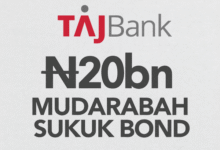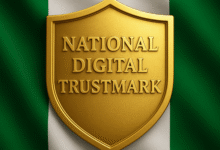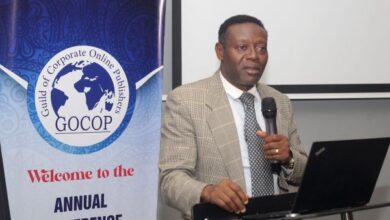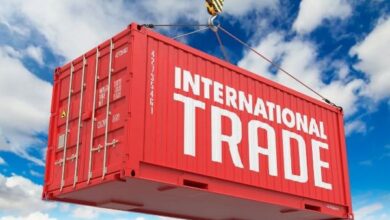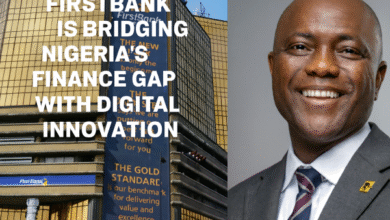Alternative Banking Systems: Nigeria’s Lifeline for Underserved Communities – CBN

Financial Inclusion Takes Center Stage as CBN Champions Alternative Banking Systems
The Central Bank of Nigeria (CBN) has reaffirmed its commitment to expanding financial inclusion through alternative banking systems, describing them as the lifeline for underserved and unbanked communities across the country.
Speaking at the CBN Fair in Calabar, the apex bank’s Governor, Dr. Olayemi Cardoso, said the initiative aligns with the bank’s mission to promote inclusive economic growth and ensure that no Nigerian is left behind in the financial ecosystem.
Represented by Mr. Uche Tobias, Assistant Director of Corporate Communications, Cardoso said the fair, themed “Driving Alternative Payment Channels as Tools for Financial Inclusion, Growth, and Accelerated Economic Development,” was designed to sensitize Nigerians about the opportunities within the expanding digital finance landscape.
“Alternative payment channels provide access, convenience, and empowerment for millions of Nigerians in underserved rural communities,” Cardoso said.
“They remain vital to our goal of ensuring that every citizen has access to affordable and efficient financial services.”
Alternative Banking Channels Transforming Nigeria’s Financial Landscape
Cardoso highlighted key alternative payment channels driving financial inclusion across Nigeria, including:
- Mobile money platforms, which enable quick and secure transfers without traditional bank accounts.
- Agency banking, offering financial services through local agents in remote areas.
- USSD services, providing low-cost access to banking on basic mobile phones.
- Internet and digital banking, expanding convenience for tech-savvy users and small businesses.
According to the CBN Governor, these platforms have not only improved access to finance but have also boosted entrepreneurship, rural trade, and digital literacy—key ingredients for Nigeria’s transition to a modern, inclusive economy.
“Financial inclusion is not just about access; it’s about empowerment,” Cardoso emphasized.
“When rural dwellers can save, invest, and transact with ease, the entire economy benefits.”
Policy Reforms Strengthening Nigeria’s Financial System
Cardoso also outlined several key reforms introduced under his administration to strengthen the country’s financial stability and enhance trust in the banking system. These include:
- Exchange Rate Unification – harmonizing Nigeria’s multiple exchange rates to improve transparency and attract foreign investment.
- Bank Recapitalization Drive – strengthening banks’ capital bases to support larger-scale financing of Nigeria’s economy.
- Non-Resident Bank Verification Number (BVN) – improving financial data integrity for diaspora and foreign-based Nigerians.
- BMatch System for Forex Trading – promoting fair and efficient currency trading practices.
- Nigeria Payments System Vision 2028 (PSV 2028) – setting the long-term digital roadmap for an inclusive and innovative payments ecosystem.
- 75% Cash Reserve Ratio on Non-TSA Public Sector Deposits – curbing liquidity abuse and ensuring fiscal discipline in the public sector.
Cardoso added that these reforms were designed to enhance financial integrity, deepen credit access, and position Nigeria as a leading digital finance hub in Africa.
Calabar Fair: Bridging Knowledge and Participation
The CBN Fair in Calabar served as a hands-on engagement platform where citizens could directly interact with CBN officials, learn about current reforms, and understand how digital banking channels can simplify daily transactions.
According to Mr. Jibunoh Nwanneamaka, the CBN’s Branch Controller in Calabar, the fair remains a vital tool for public enlightenment and trust-building.
Represented by Mr. Jude Nwafor, Head of Research at the CBN Calabar Branch, he noted:
“The financial world is evolving rapidly. It is important for Nigerians to understand not only the reforms but also how CBN is aligning with global digital transformation trends.
Through this engagement, we aim to build trust, protect consumers, and ensure that every Nigerian feels empowered to participate in the financial ecosystem.”
Stakeholders Endorse CBN’s Inclusive Approach
At the event, stakeholders from the business and agricultural sectors applauded the CBN’s ongoing financial inclusion drive, noting its direct impact on access to credit, business growth, and poverty reduction.
Mr. Kelly Ayamba, President of the Calabar Chamber of Commerce, Industry, Mines and Agriculture (CALCIMA), praised the apex bank for reaching out to local businesses through grassroots initiatives.
“We see this as an attempt by the CBN to ensure that every Nigerian is carried along in the growth of the financial industry,” Ayamba said.
“Financial inclusion means shared prosperity — and this sensitization is a major step in that direction.”
Similarly, Prof. John Shiyam, Special Adviser to Governor Bassey Otu of Cross River State on Agriculture, commended the CBN’s efforts in using alternative banking systems to promote agricultural financing and rural development.
“The CBN has achieved remarkable feats in promoting alternative banking systems that support farmers and small agribusinesses,” he stated.
“Cross River State is committed to partnering with the apex bank to boost agricultural productivity and ensure food security.”
Alternative Banking and the Future of Nigeria’s Economy
As Nigeria accelerates toward a digital future, alternative banking has become more than a convenience — it is a national development imperative.
With over 38 million adults still financially excluded according to recent CBN data, expanding mobile money and agency banking networks is critical to achieving the National Financial Inclusion Strategy (NFIS) 2028 target of at least 95% inclusion.
Experts believe that strengthening digital and agency channels could also help curb fraud, enhance traceability, and bring the informal sector into the formal economy, thereby expanding the tax base and improving monetary policy efficiency.
BRANDECONOMY analysis reveals that Nigeria’s fintech ecosystem, now valued at over $3 billion, is a major enabler of these inclusion efforts. Collaboration between the CBN, fintech innovators, and traditional banks could fast-track the democratization of finance, especially for women, farmers, and micro-entrepreneurs in remote communities.
BRANDECONOMY Insight: Building a Truly Inclusive Financial Future
The CBN’s renewed focus on alternative banking systems signals a strategic shift toward people-centered economic growth. Beyond policy reforms, it reflects a commitment to bridging Nigeria’s urban-rural divide through technology, education, and trust.
For millions of Nigerians still unbanked, access to reliable financial services means more than convenience — it means economic freedom, resilience, and dignity.
As Dr. Cardoso continues to implement the Nigeria Payments System Vision 2028, success will depend on the synergy between regulation, innovation, and public awareness.
With consistent execution and collaboration, Nigeria could emerge as Africa’s most inclusive digital economy — where every citizen, from city traders to rural farmers, can participate fully in the nation’s financial growth story.


